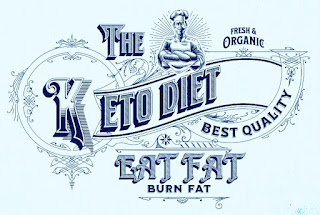Debunking Common Misconceptions: Is the Keto Diet Unhealthy?
The keto diet has become increasingly popular over the years, with many people adopting it as a lifestyle choice for weight loss and overall health. However, there are still many misconceptions about the keto diet, with some people believing that it can be unhealthy or even dangerous. In this article, we will debunk these common misconceptions and shed light on the truth about the keto diet.
Misconception #1: The Keto Diet Is Unhealthy Because It Is High in Fat
One of the main misconceptions about the keto diet is that it is unhealthy because it is high in fat. However, it's important to understand that not all fats are created equal. The keto diet focuses on healthy fats such as avocados, nuts, seeds, and olive oil, which are rich in essential nutrients such as omega-3 fatty acids and monounsaturated fats. These healthy fats have been shown to reduce inflammation, lower cholesterol levels, and improve heart health.
Misconception #2: The Keto Diet Can Lead to Nutrient Deficiencies
Another misconception about the keto diet is that it can lead to nutrient deficiencies. While it's true that the keto diet restricts certain foods such as grains, fruits, and starchy vegetables, it encourages the consumption of nutrient-dense foods such as leafy greens, cruciferous vegetables, and fatty fish. In fact, many people find that they are consuming more nutrient-dense foods on the keto diet than they were before.
Misconception #3: The Keto Diet Is a Fad Diet and Not Sustainable
Some people believe that the keto diet is a fad diet that is not sustainable in the long run. However, the keto diet has been around for decades and has been used to treat medical conditions such as epilepsy and type 2 diabetes. Additionally, many people find that the keto diet is sustainable for them because it helps them feel more satisfied and reduces their cravings for unhealthy foods.
Misconception #4: The Keto Diet Causes Muscle Loss
A common misconception about the keto diet is that it causes muscle loss. However, studies have shown that the keto diet can actually help preserve muscle mass while promoting fat loss. This is because the keto diet encourages the consumption of protein, which is essential for maintaining muscle mass.
Misconception #5: The Keto Diet Is Dangerous Because It Causes Ketoacidosis
One of the most common misconceptions about the keto diet is that it is dangerous because it causes ketoacidosis. However, it's important to understand that ketoacidosis is a rare and dangerous condition that only occurs in people with uncontrolled type 1 diabetes. The keto diet, on the other hand, is a safe and healthy way of eating for most people.
In conclusion, the keto diet is not unhealthy or dangerous when done correctly. It can be a sustainable and effective way of losing weight and improving overall health. However, it's important to consult with a healthcare professional before starting the keto diet, especially if you have any underlying medical conditions. With the right guidance and approach, the keto diet can be a safe and enjoyable way of eating for many people.
.jpg)



Comments
Post a Comment